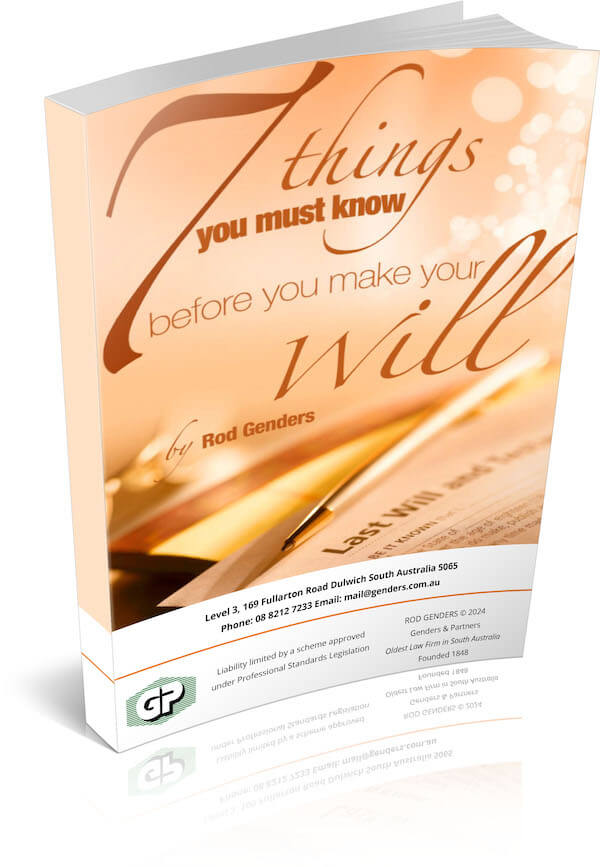
Estate planning lawyers are getting mobbed with questions. So, here is some timely advice on what families should be doing to prepare in case the unimaginable happens.
The economy and job market has recently been in a free fall. The world has not experienced this level of fear since the days of the polio epidemic in the 1940s and 1950s.
During those decades, polio outbreaks literally crippled tens of thousands of people every year. My aunt was one of them. Parents were frightened to let their children go outside.
Travel and commerce between affected cities were restricted. Public health officials imposed quarantines on homes and towns where polio cases were found.
Sound familiar?
Now, with the coronavirus, some of those same fears are resurfacing in many ways, from health and safety to the economy, the stock market and personal finances. For many, the current crisis is serving as a wake-up call to get their estate plans in order.
Suddenly people are meeting with estate planning lawyers at an increasing frequency, and with increasing desperation. Appointment books are getting filled quickly.
People who have been putting-off establishing an estate plan suddenly can’t wait any longer. People are afraid of their entire family getting wiped out.
As this virus has a special ability of wreaking havoc on people over 60 or in retirement accommodation, it is critical to address the “What if I get it?” question now and not put this off.
Do you have a succession plan in place for yourself and your family for the management and ownership of your assets, in the event of your incapacity or death?
Establish a Power of Attorney
A key area where people need to take action is to have a ready answer to this question: What if key decision makers as well as heads of household fall ill, become temporarily incapacitated and are not able to pay bills, taxes or take care of family and business-related financial obligations? Then what?
You need an Enduring Power of Attorney. This is a legal document that allows you to authorise one or more trusted persons to act as your agent in case you lose the ability to sign documents or make decisions of a legal or financial nature. It is called ‘enduring’ because it continues to operate even if you lose your capacity.
Let’s say the virus has landed you in quarantine in a hospital, or you are bottled up at home and can’t get out to take care of business and/or your ability — your mental capacity — to manage your affairs is impaired because of illness.
Having an enduring power of attorney in place allows a trusted friend, family member or perhaps business associate to take money out of your bank account, pay your bills, even make a court appearance for you.
That person becomes your agent — your trusted lieutenant — and can legally act for you. But be careful who you select, because giving that power to the wrong person is an invitation to be taken to the cleaners. They can open and close your bank accounts and sell your real estate.
Have an Advance Care Directive in Place
An advance care directive is a document that explains how you want decisions about your accommodation, lifestyles, health care and medical treatment to be made if you are unable to make these decisions yourself.
It allows your health care team and loved ones to know what kind of care you want, and who should make decisions for you when you cannot.
In this age when more and more people are living together without being married, having an advance care directive can prove very important, especially if you have established a domestic partnership.
If not, and you are not married, then the healthy partner could be viewed as a legal stranger to you and have no rights to be informed about your health or treatment. Also, that person would have no input into important health decisions.
You do not want to be in a situation where your financially incompetent and emotionally distant relative has this power to determine your care and the quality of your life.
Where is Everything?
For many of us, our financial lives are online. Lots of people do not receive bills in the mail. Now, assume that you wind up in the hospital, on a respirator, unable to communicate.
Bills are piling up, but no one knows your banking passwords, internet provider, Netflix login, utility bills and on it goes. Or, you have a safe-deposit box, but only you can get in.
How do we address those issues? As Dirty Harry said: “You need to ask yourself a question.” In this case the question is: “Do all appropriate family members have essential information in the event of your incapacity or death, including the location of important estate, business and financial documents, names and contact information of accountants, lawyers, investment advisers and related business professionals?”
You should create a journal listing all these people, the bills you pay monthly, insurance, tax and so on, to lessen the burden on family members from scrambling to re-construct your financial life.
It is difficult for most people to imagine the challenge of working through both grief and the financial realities following death or incapacity. Somebody will need to know about your bank accounts, life insurance, super or pension details.
So, consider the people whom you love, who love you and lessen their burden. Taking the time to do this will give you (and them) great peace of mind.
The Poor Man’s Will
Lately, social media has been filled with ‘bush-lawyers’ who offer clever-sounding advice such as ‘I’ll Put My Son’s Name as a Co-Owner of My House – That’s How I Avoid Probate!’
This is so dangerous! Consider the possibility that your son causes a car accident or gets divorced. His creditors and predators become yours too! You could be forced to sell your home if he is sued! Also, by making him a co-owner now, you lose the freedom to decide by yourself when to sell. Don’t do it!
Have a Family Meeting Now
This is the time for a family meeting with — hopefully — your mature, financially competent adult children so the transition of management and wealth within the family can be effectively handled.
The ongoing threat and reactions to the coronavirus are causing us to engage in deep reflection regarding our personal health and wealth, which is especially important to the elders in our families.
A lot of people have never had estate planning documents prepared by an lawyer who specialises in this area. Just as many have had such a plan prepared, but it has not been reviewed or kept up to date in several years. Let us hope the virus will simply fade away, but until then, your own mental health will be so improved by addressing these issues now.
SPECIAL REPORT “7 Things You Must Know Before You Make Your Will”
In this report you will Learn:

Why home-made Wills can be a LOT more expensive than you might think.
The secret weapons used by the rich & powerful to protect their assets, and transfer their wealth two or three generations ahead.
How Estate and Trustee Companies make BIG money from “free” Wills.
The Most Common Estate Planning Mistakes, how they can cost your family a fortune, and How to Avoid Them.
The Elements of a Sound Estate Plan – why a Will alone is not enough.
How to Make Sure Your Assets Stay in Your Family and are not lost to creditors, lawsuits or ex-spouses.
How to guard against challenges to your Estate after you’re gone.

